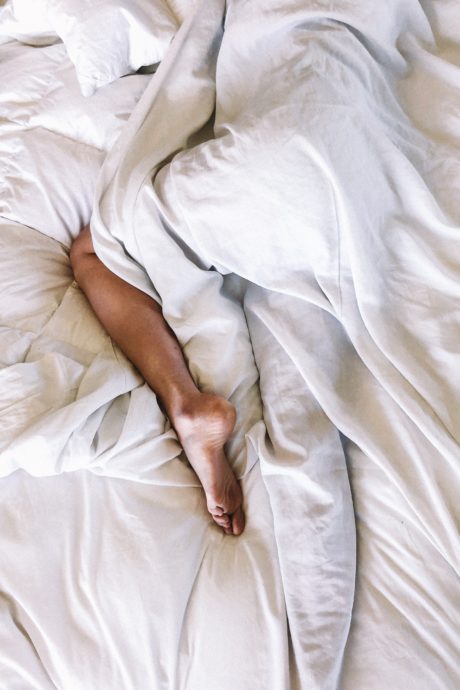
By NIKKI FLECK L.Ac. NTP
Do you know that every single mammal sleeps? Although mammals are more vulnerable during sleep, not one has yet evolved to eliminate their sleep requirements. This clue alone tells us sleep must be pretty dang important for survival and overall health. Getting an adequate amount of quality sleep each night is essential in supporting our bodies and brain. Most adults need 7-10 hours of sleep each night, but many fall short. Researchers have found that during sleep our brain consolidates memories, processes and files experiences of the day so we can make sense of our world. Sleep supports optimal cognition, attention and motor skills. (This is why driving sleep deprived can be even more reckless than driving intoxicated). While we sleep, our skin regenerates and our bodies absorb, process, and assimilate nutrients while detoxifying what is unwanted. In Traditional Chinese Medicine (TCM) sleep is important to rebuilding Qi and blood while balancing yin and yang. We know that many bodily systems are negatively impacted by lack of sleep. Persistent lack of sleep can cause depression, weight gain, hormonal imbalance, irritability, immune deficiency and brain fog, for example.
From a TCM perspective, disharmony of the heart can cause many types of sleep disturbances, but imbalance in other organ systems can also cause specific manifestations of insomnia. For example, tossing and turning, nightmares and waking up between 1:00-3:00 AM points to stress in the liver and gallbladder. Difficulty falling asleep and tiredness after eating is related to the spleen and stomach, while waking up frequently, night sweats and sore back and knees are typically caused by deficiency in the kidneys. In TCM we treat insomnia a bit differently with each patient. We work to address the root cause and unique symptoms each patient is experiencing with diverse herbal, acupuncture and food therapy prescriptions. Treating these imbalances intelligently helps to alleviate chronic sleep issues over time whereas even “natural” sedating herbs or supplements usually only provide temporary solutions.
A popular supplement I see self prescribed in my practice is Melatonin. It has a reputation as a safe and natural treatment for insomnia. However, there is actually no long term research supporting safety and efficacy on using melatonin regularly. Additionally, since Melatonin is a hormone our body produces naturally to promote sleep, taking Melatonin regularly may disrupt our bodies natural feedback loops that signal the release of this hormone when we need it. In my clinical experience, many patients have improved their sleep greatly by addressing their bodies’ underlying imbalances by utilizing herbs, acupuncture, wise supplementation and/or lifestyle shifts. Some may have the occasional night they need melatonin or even a prescription medication but often this becomes the exception, not the rule. Helping the body sleep restfully is foundational to healing other seemingly unrelated symptoms and can greatly improve quality of life for many patients. As always, feel free to reach out to me with any questions or feedback, I enjoy hearing from you.
Tips for supporting sleep:
- Maintain a routine, try to go to bed at the same time each night
- Make your bedroom conducive to sleeping; this can include room darkening curtains, a white noise machine and grounding items like plants or rocks
- Pause caffeine after 3:00 pm
- Reduce alcoholic beverages (and generally all beverages) as well as cigarettes before bedtime
- Learn calming acupressure points from your local acupuncturist
- Try to limit your bed to sleeping, reading and sex. Better yet, remove electronics from the bedroom to limit blue light exposure which can increase cortisol levels and delay the release of melatonin (aka the sleep inducing hormone)
- Adjust phone and computer to “night shift” for your timezone to reduce blue light emissions
- Regular exercise can help sleep – but make sure not to exercise too close to bedtime because it can have a stimulating effect
- Create a relaxation routine prior to bed. Read, meditate, take a warm bath or shower
- Soak the feet in warm water with essential oils or epsom salt before bed
- Ask a TCM practitioner about applying moxibustion on the soles of feet
Email: nikki@perennialacupuncture.com
Acupuncturist, herbalist and Nutritional Therapist at Perennial Acupuncture and Companion Medicine
Disclaimer: Information is for informational and educational purposes only. Information is not intended to diagnose, treat, cure or prevent any disease. Speak to your healthcare provider before implementing any changes to your health care practice.









